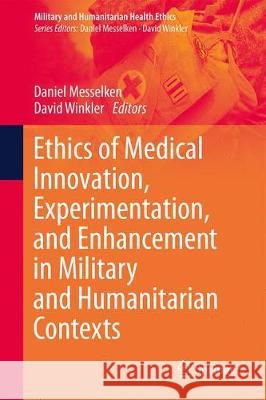Ethics of Medical Innovation, Experimentation, and Enhancement in Military and Humanitarian Contexts » książka
topmenu
Ethics of Medical Innovation, Experimentation, and Enhancement in Military and Humanitarian Contexts
ISBN-13: 9783030363185 / Angielski / Twarda / 2020 / 268 str.
Ethics of Medical Innovation, Experimentation, and Enhancement in Military and Humanitarian Contexts
ISBN-13: 9783030363185 / Angielski / Twarda / 2020 / 268 str.
cena 483,04
(netto: 460,04 VAT: 5%)
Najniższa cena z 30 dni: 424,07
(netto: 460,04 VAT: 5%)
Najniższa cena z 30 dni: 424,07
Termin realizacji zamówienia:
ok. 16-18 dni roboczych.
ok. 16-18 dni roboczych.
Darmowa dostawa!
Kategorie BISAC:
Wydawca:
Springer
Seria wydawnicza:
Język:
Angielski
ISBN-13:
9783030363185
Rok wydania:
2020
Wydanie:
2020
Numer serii:
001038248
Ilość stron:
268
Waga:
0.50 kg
Wymiary:
23.88 x 16.51 x 1.52
Oprawa:
Twarda
Wolumenów:
01











